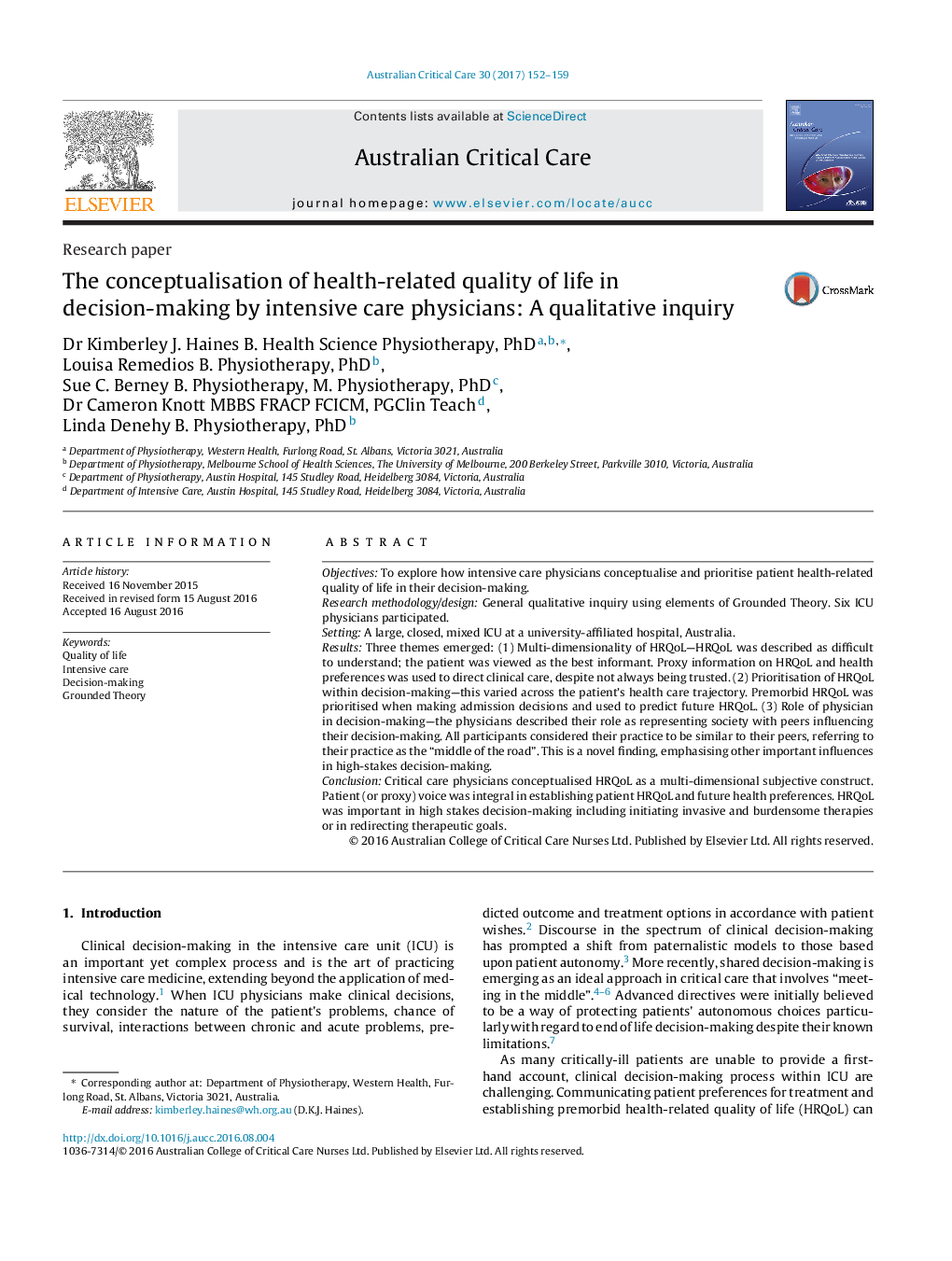| Article ID | Journal | Published Year | Pages | File Type |
|---|---|---|---|---|
| 5562946 | Australian Critical Care | 2017 | 8 Pages |
ObjectivesTo explore how intensive care physicians conceptualise and prioritise patient health-related quality of life in their decision-making.Research methodology/designGeneral qualitative inquiry using elements of Grounded Theory. Six ICU physicians participated.SettingA large, closed, mixed ICU at a university-affiliated hospital, Australia.ResultsThree themes emerged: (1) Multi-dimensionality of HRQoL-HRQoL was described as difficult to understand; the patient was viewed as the best informant. Proxy information on HRQoL and health preferences was used to direct clinical care, despite not always being trusted. (2) Prioritisation of HRQoL within decision-making-this varied across the patient's health care trajectory. Premorbid HRQoL was prioritised when making admission decisions and used to predict future HRQoL. (3) Role of physician in decision-making-the physicians described their role as representing society with peers influencing their decision-making. All participants considered their practice to be similar to their peers, referring to their practice as the “middle of the road”. This is a novel finding, emphasising other important influences in high-stakes decision-making.ConclusionCritical care physicians conceptualised HRQoL as a multi-dimensional subjective construct. Patient (or proxy) voice was integral in establishing patient HRQoL and future health preferences. HRQoL was important in high stakes decision-making including initiating invasive and burdensome therapies or in redirecting therapeutic goals.
